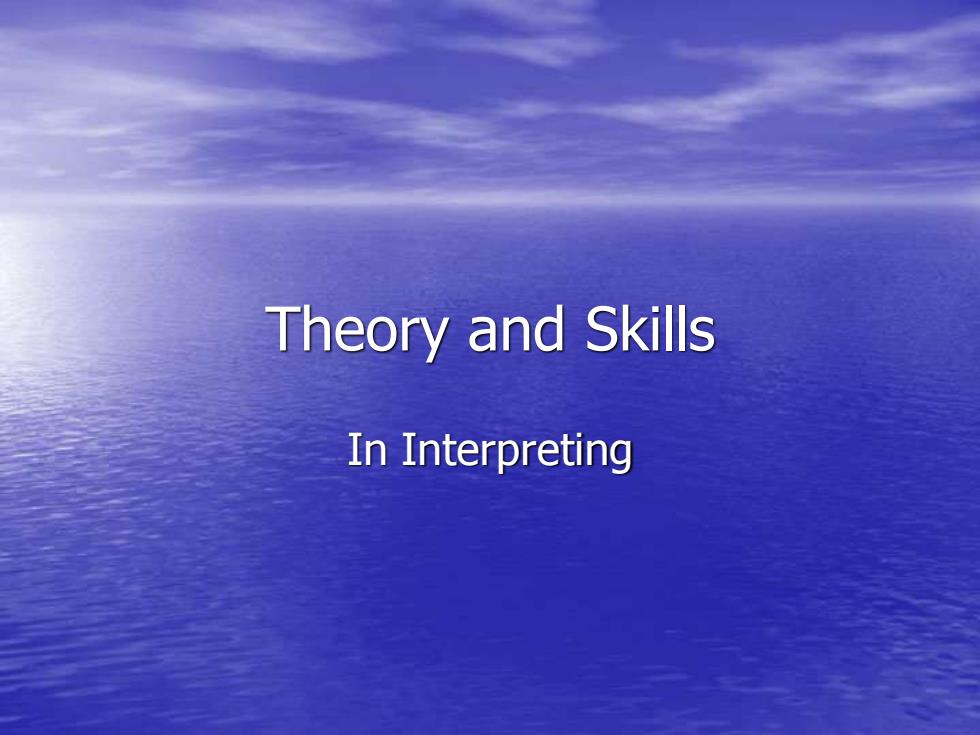
Theory and Skills In Interpreting
Theory and Skills In Interpreting
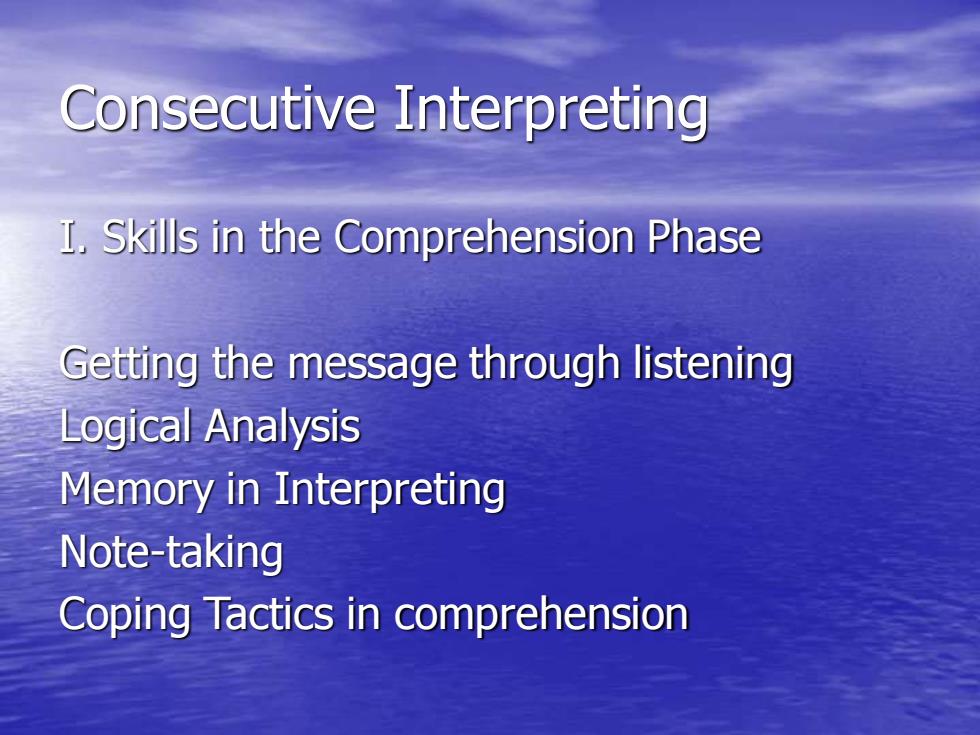
Consecutive Interpreting I.Skills in the Comprehension Phase Getting the message through listening Logical Analysis Memory in Interpreting Note-taking Coping Tactics in comprehension
Consecutive Interpreting I. Skills in the Comprehension Phase Getting the message through listening Logical Analysis Memory in Interpreting Note-taking Coping Tactics in comprehension
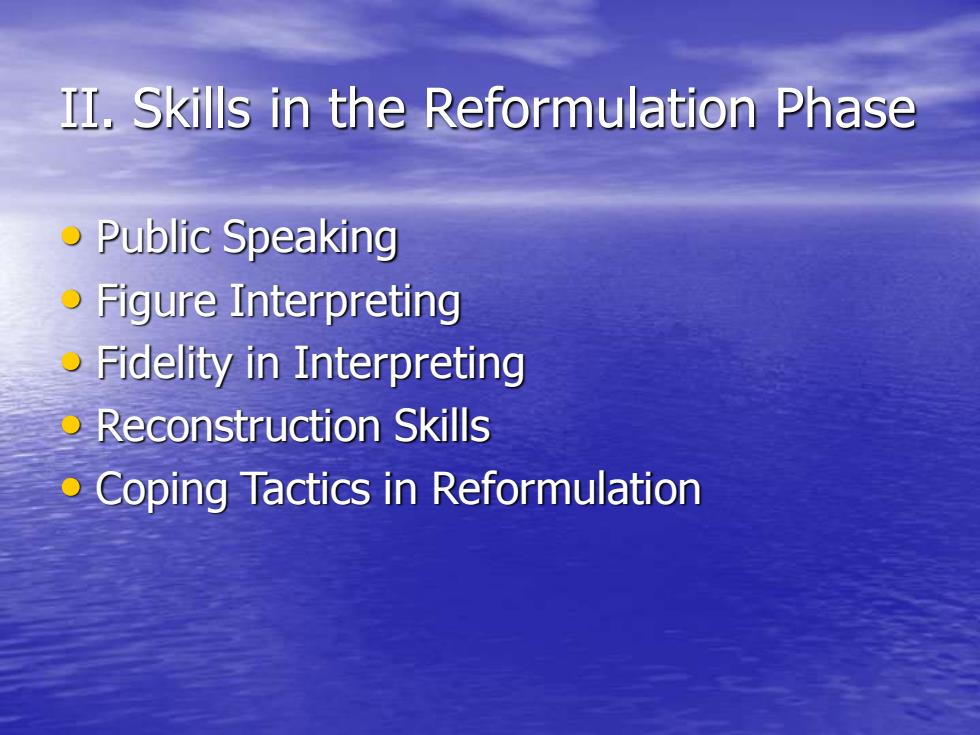
II.Skills in the Reformulation Phase ·Public Speaking ·Figure Interpreting Fidelity in Interpreting Reconstruction Skills Coping Tactics in Reformulation
II. Skills in the Reformulation Phase • Public Speaking • Figure Interpreting • Fidelity in Interpreting • Reconstruction Skills • Coping Tactics in Reformulation
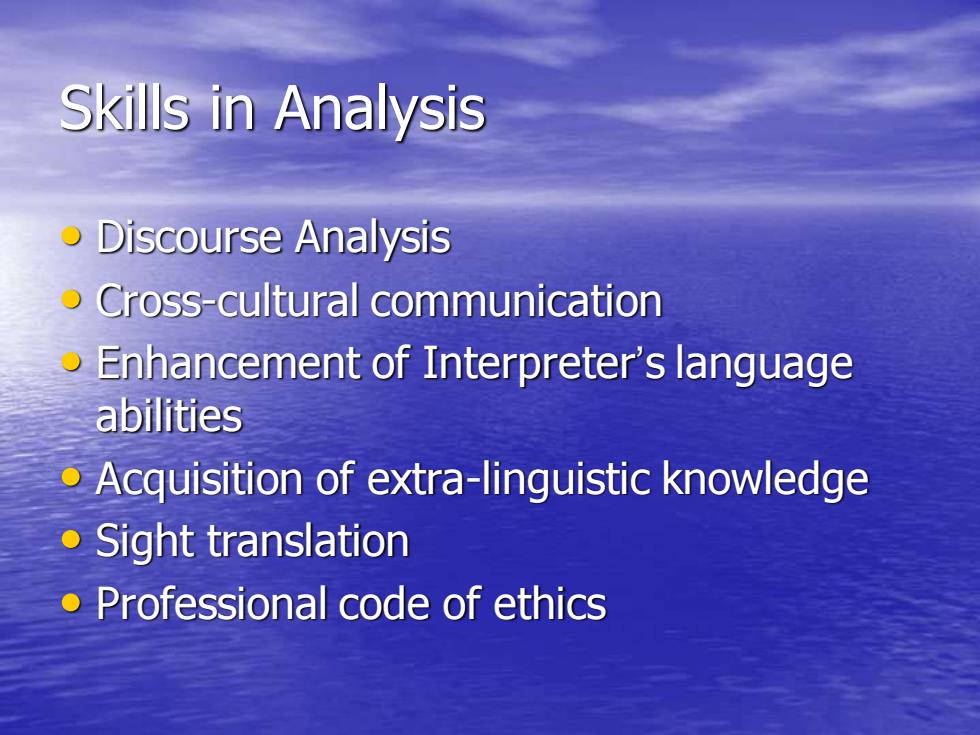
Skills in Analysis ·Discourse Analysis Cross-cultural communication Enhancement of Interpreter's language abilities Acquisition of extra-linguistic knowledge ·Sight translation o Professional code of ethics
Skills in Analysis • Discourse Analysis • Cross-cultural communication • Enhancement of Interpreter’s language abilities • Acquisition of extra-linguistic knowledge • Sight translation • Professional code of ethics
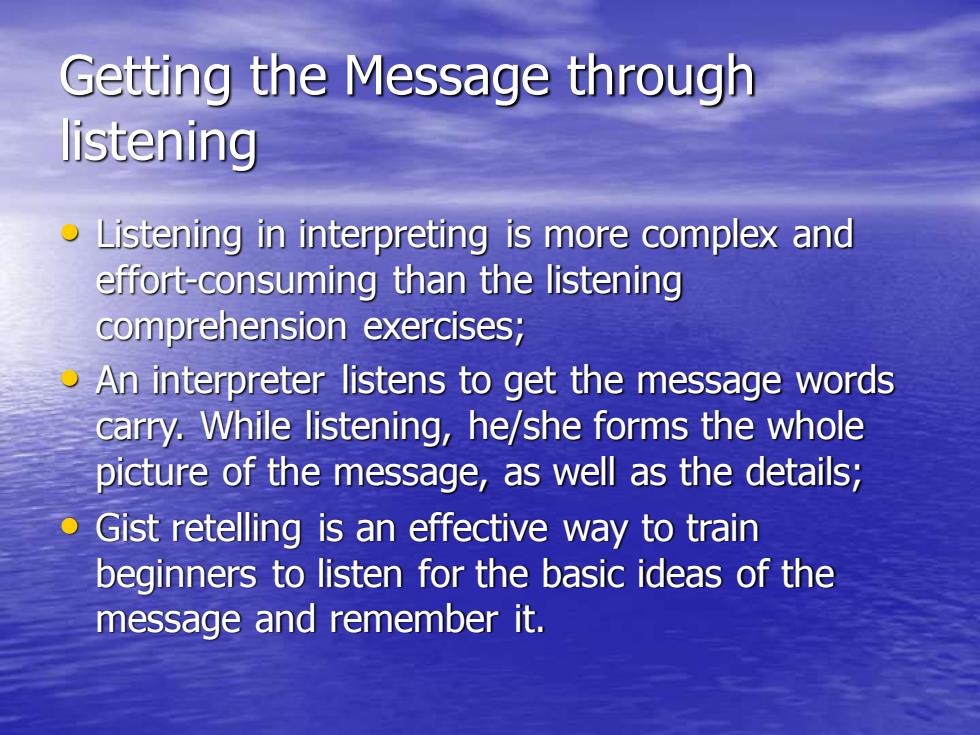
Getting the Message through listening oListening in interpreting is more complex and effort-consuming than the listening comprehension exercises; An interpreter listens to get the message words carry.While listening,he/she forms the whole picture of the message,as well as the details; Gist retelling is an effective way to train beginners to listen for the basic ideas of the message and remember it
Getting the Message through listening • Listening in interpreting is more complex and effort-consuming than the listening comprehension exercises; • An interpreter listens to get the message words carry. While listening, he/she forms the whole picture of the message, as well as the details; • Gist retelling is an effective way to train beginners to listen for the basic ideas of the message and remember it